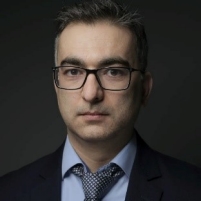notice
INVITED SPEAKER SEMINAR - Beyond Isolated Labels: Structured Learning and Task Grouping in Scene Classification

Date: Thursday, July 3, 2025, from 11:00 a.m.
Location: EV 3.309
Abstract
Scene classification remains a central challenge in computer vision, requiring models to capture both the local structure and global context of visual environments. As scene understanding grows increasingly relevant across different applications of engineering significance. Ranging from autonomous navigation to environmental monitoring, there is a need for learning frameworks that go beyond isolated category modeling. In this talk, I will explore emerging strategies that incorporate multi-task learning, context-aware representations, and knowledge transfer to improve scene classification performance. As a case study, I will introduce our recent work on Hierarchical Transfer and Multi-task Learning (HTMTL), a framework that exploits inter-scene relationships to enhance classification accuracy. By modeling how contextual cues from one scene type can support recognition in others, HTMTL achieves notable gains on the Places365 dataset and offers insights into the synergistic effect of task grouping and shared representation learning. This talk will highlight the broader direction of leveraging structured learning to advance robust and scalable scene understanding.
Biography
Dr. Reza Khoshkangini is a Senior Lecturer in Machine Learning (ML) and Artificial Intelligence (AI) at the Department of Computer Science and Media Technology, Malmö University. His academic work focuses on advancing ML and AI technologies and applying them across diverse domains such as healthcare, the automotive industry, smart cities, and the Internet of Things (IoT). He earned his Ph.D. in Computer Science from the University of Padova, Italy, and has since been involved in cutting-edge research, including collaborations with major industry players such as Volvo. Dr. Khoshkangini has extensive teaching experience across bachelor's, master's, and Ph.D. levels and is passionate about integrating research with education. Currently, he leads several interdisciplinary research projects, particularly in computer vision and healthcare, where he works closely with industry partners to develop and deploy AI solutions that address real-world challenges.

